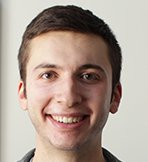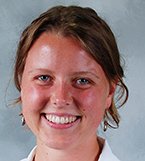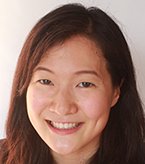Congratulations to the winners of the 2016 Lasker Essay Contest! This year we asked participants to consider which fundamental discoveries in basic medical research have not been clinically explored and translated into better human health.
The winners received monetary prizes to be used towards educational expenses. The first-place prize was $10,000. Second- and third-place prizes were $5000 and $2500, respectively. The honorees have been invited to New York to meet the 2016 Lasker Award winners during the Awards Ceremony on September 23.
The winning essays are published on our website in their original form, without editorial review.
First Place
David Ottenheimer, Johns Hopkins University
 David Ottenheimer is a PhD student in the Solomon H Snyder Department of Neuroscience at the Johns Hopkins School of Medicine. Originally from Boston, he graduated magna cum laude from Yale University with a BS in Psychology, focusing in neuroscience. Before graduate school, he spent an additional year at Yale researching the neural circuitry underlying feeding using chemo- and optogenetic techniques. At Johns Hopkins, he plans to study the neural circuits that encode rewarding stimuli.
David Ottenheimer is a PhD student in the Solomon H Snyder Department of Neuroscience at the Johns Hopkins School of Medicine. Originally from Boston, he graduated magna cum laude from Yale University with a BS in Psychology, focusing in neuroscience. Before graduate school, he spent an additional year at Yale researching the neural circuitry underlying feeding using chemo- and optogenetic techniques. At Johns Hopkins, he plans to study the neural circuits that encode rewarding stimuli.
Essay Modern Neuroscience Has the Tools to Treat Psychiatric Illness
Second Place
Therese Woodring (Korndorf), University of Illinois College of Medicine at Peoria
 Therese (Tess) Korndorf is a second-year medical student at the University of Illinois College of Medicine at Peoria. She grew up in the Midwest and earned her BA in Biology and Comparative Literature at Dartmouth College. Before beginning her clinical rotations, Tess will take a year off to participate in the 2016-2017 Medical Research Scholars Program at the National Institutes of Health in Bethesda, Maryland.
Therese (Tess) Korndorf is a second-year medical student at the University of Illinois College of Medicine at Peoria. She grew up in the Midwest and earned her BA in Biology and Comparative Literature at Dartmouth College. Before beginning her clinical rotations, Tess will take a year off to participate in the 2016-2017 Medical Research Scholars Program at the National Institutes of Health in Bethesda, Maryland.
Essay Hacking the Bacterial Social Network: Quorum Sensing and the Future of Microbial Management
Third Place
Unikora Yang, Children’s Hospital Los Angeles
 Unikora Yang is a first-generation Korean-American from New York City. She earned her BS with honors in neuroscience and MD from Brown University, where she conducted research on the genetics of neurodevelopmental disorders. She is currently a pediatrics resident at Children’s Hospital Los Angeles and plans to pursue fellowship training in neonatology. Unikora hopes to combine her passions for public health, genetics, and child development by conducting basic science research to improve medical treatment for critically ill infants.
Unikora Yang is a first-generation Korean-American from New York City. She earned her BS with honors in neuroscience and MD from Brown University, where she conducted research on the genetics of neurodevelopmental disorders. She is currently a pediatrics resident at Children’s Hospital Los Angeles and plans to pursue fellowship training in neonatology. Unikora hopes to combine her passions for public health, genetics, and child development by conducting basic science research to improve medical treatment for critically ill infants.
Essay The Cutting Edge of DNA Editing: Translating CRISPR to Improve Human Health
